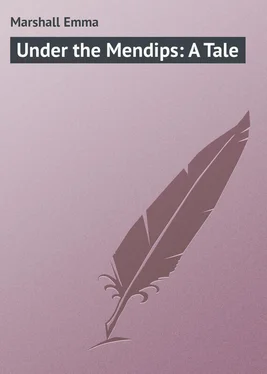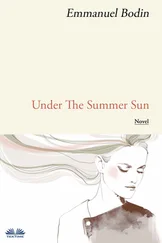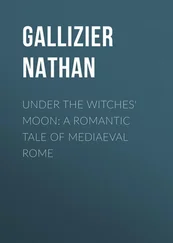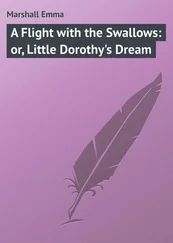Emma Marshall - Under the Mendips - A Tale
Здесь есть возможность читать онлайн «Emma Marshall - Under the Mendips - A Tale» — ознакомительный отрывок электронной книги совершенно бесплатно, а после прочтения отрывка купить полную версию. В некоторых случаях можно слушать аудио, скачать через торрент в формате fb2 и присутствует краткое содержание. Жанр: foreign_prose, на английском языке. Описание произведения, (предисловие) а так же отзывы посетителей доступны на портале библиотеки ЛибКат.
- Название:Under the Mendips: A Tale
- Автор:
- Жанр:
- Год:неизвестен
- ISBN:нет данных
- Рейтинг книги:5 / 5. Голосов: 1
-
Избранное:Добавить в избранное
- Отзывы:
-
Ваша оценка:
- 100
- 1
- 2
- 3
- 4
- 5
Under the Mendips: A Tale: краткое содержание, описание и аннотация
Предлагаем к чтению аннотацию, описание, краткое содержание или предисловие (зависит от того, что написал сам автор книги «Under the Mendips: A Tale»). Если вы не нашли необходимую информацию о книге — напишите в комментариях, мы постараемся отыскать её.
Under the Mendips: A Tale — читать онлайн ознакомительный отрывок
Ниже представлен текст книги, разбитый по страницам. Система сохранения места последней прочитанной страницы, позволяет с удобством читать онлайн бесплатно книгу «Under the Mendips: A Tale», без необходимости каждый раз заново искать на чём Вы остановились. Поставьте закладку, и сможете в любой момент перейти на страницу, на которой закончили чтение.
Интервал:
Закладка:
"There's a carriage driving up! I think it is Mrs. More's."
"Mrs. More!" exclaimed Mrs. Falconer, sharply. "I hoped I had heard the last of the dairy-maid."
Joyce, who was at that moment seated on a haycock, with her rake thrown carelessly at her side, sprang up. "Did you say Mrs. More's carriage, father? Oh, I am afraid – " She stopped.
"Afraid of what?" Gilbert Arundel asked.
"Oh, nothing; only Aunt Letitia said Mrs. More wanted to see me, or, rather, know me. Mother does not like Mrs. More, and Mrs. More thinks her very careless about the maids' education, just as Aunt Letitia thinks she is careless about mine; here comes Sarah."
"If you please, ma'am, I was to say Mrs. More wished you to come and speak to her. She won't get out of the carriage, because her legs are too stiff."
"Come, my dear," the squire said, "make haste, and go round to the front door."
"Not I. I shall not make haste; indeed, I'll send Joyce instead. Go, Joyce, at once. Say we are having a hay-making party, and end with a supper when the last wain is carried; which, I'll be bound, she will call sinful."
Joyce had to free herself from the wisps of hay which clung to her, and to smooth her tangled curls. They were confined by combs and pins, but all had fallen out in the scrimmage in the hay, and they now fell on either side of her flushed face. Perhaps she had never looked more lovely than at that moment when, turning to her father, she said:
"Do you really wish me to go like this, dear dad?"
"My dear, some one must go; and at once. Mrs. More is not a person to keep waiting."
Joyce did not delay a moment, but went with her quick, light step across the field, and then through a little gate which opened into a belt of low-growing shrubs, beyond which was the carriage-road from the village.
An old-fashioned barouche – old-fashioned even in those days – stood before the door, and sitting in it were two ladies; the elder one upright and alert, the younger leaning back as if to resign herself to the long waiting time, before any of the family appeared.
Although comparatively near neighbours in the county, Joyce never remembered to have seen Mrs. More before. Her name was familiar enough, and her schools, established on all sides, were known by every one, though it cannot be said they were approved by every one.
Mrs. More and her sister had in times past made some overtures towards Mrs. Falconer, but they were coldly repulsed, and a parcel of tracts had even been returned. Later there had been the disagreement about the dairy-maid, and the time for Mrs. Hannah More to carry the crusade into the enemy's camp was over. She had, in the year 1824, nearly numbered her four-score years; and the loss of her sisters, and repeated attacks of illness, made her more willing to rest from her labours, only taking care that the good seed sown in the days of health and vigour, should be watered and cared for, that it might yield a good harvest.
It had happened that several times during the lovely spring of this year she had met Joyce Falconer driving in the high gig with her father, or trotting by his side on the rough pony, the use of which she shared with all her young brothers. The sweet, frank face had attracted her, and she had inquired about Joyce when on a visit of ceremony at the Palace at Wells a few weeks before.
The result was, as we know, that Miss Falconer gave a melancholy account of her niece's ignorance, which she believed was entirely due to her mother's prejudices as to boarding-schools and her father's over-indulgence and excessive affection for his only daughter.
With her accustomed sympathy with all the young who were just setting forth on life's journey, Mrs. More determined to see something of Mr. Falconer's little daughter, and her aunt's letter had decided her to lose no time in paying a visit to Fair Acres.
As Joyce came up to the steps of the carriage Mrs. More held out her hand – a white, delicately-formed hand, half covered by a lace mitten.
Joyce had heard Mrs. More spoken of as an old lady of near eighty, and her surprise was written on her lovely face, as she said, simply:
"Are you Mrs. More?"
For the beautiful dark eyes were still lustrous, and the lips, parted with a smile, displayed a row of even teeth which many a young woman in these days might envy. A quantity of white hair was turned back from a round, full forehead, which was shadowed by a drawn-silk riding-hood, with a deep curtain and a wide bow under the chin. Intellect and benevolence shone on the face, which was marked by few lines, and the still young spirit lighted up the whole countenance as Mrs. More said:
"Yes, I am Mrs. More; and I have come to pay my respects to your good father and mother, and to make your acquaintance."
"A great hay-making party is in the home meadow," Joyce said. "My mother bids me present her apology; but my father will be here, I think, shortly. Will you not alight from the carriage?"
"No, thank you kindly, my dear;" and turning to Miss Frowde: "my friend thinks me over-bold to drive so great a distance as this; but a desire to convey to you an invitation in person has brought me hither, in the delightful cool of the summer afternoon."
"We must be getting home before the dew falls," Miss Frowde said, addressing Joyce for the first time; "I have to take great care of precious Mrs. More."
"Miss Frowde is kindly solicitous," the old lady said; "I should be ungrateful to disobey her orders so if I may ask for a drink of water for the horses, and a cup of cider for the post-boy, we will not delay our departure beyond a few minutes."
"I am so sorry," Joyce began, "that all the people are in the hay-field; but I will send a message for a man who will attend to the horses, if you will excuse me for a moment." She tripped away into the house, and very soon the maid, who had been left in charge, was despatched to the hay-field, while Joyce returned to the carriage with a jug of milk and two glasses on a tray, with some sweet cakes of her own making, and said:
"May I ask you, madam, to take a glass of milk, as a little refreshment?"
Hannah More beamed down upon the sweet young face with her brightest smile. She sipped the milk and told her companion to taste the lightest little cakes she ever ate; then she said:
"After all, I have not come to the real object of my call. I want your parents to spare you to me for a visit; and that you may not lack company, Miss Frowde will invite your cousin from the Close at Wells to meet you."
"Thank you, madam," Joyce said; "but I fear I cannot be spared during my little brothers' holidays. But here comes father."
The squire made the ladies in the carriage a low bow, and said the water was ordered for the horses, and he much wished Mrs. More would alight from the carriage, and take some refreshment.
"The refreshment has been brought to me by the hands of your young Hebe," Mrs. More said, smiling. "As to alighting, my limbs are stiff with age, and when once ensconced in my easy old chariot I am unwilling to leave it. But, Mr. Falconer, I came with a petition, for what is, I am sure, a precious possession: let me have your daughter at Barley Wood for a month. I hope, God willing, to return your treasure, with interest on the loan. Do not refuse me."
"Thank you kindly, madam," said the squire; "but her mother must be consulted. Her little brothers demand much of her attention in the holidays, and Joyce has to share her mother's labours in many ways. I fear she cannot be spared. What say you, my Sunshine?"
"I could not be spared yet, father; but later – " adding, with glistening eyes – "I should like to go to Barley Wood."
The squire put his arm round his daughter, and said:
"And I should like you to have the pleasure; but your mother – "
Читать дальшеИнтервал:
Закладка:
Похожие книги на «Under the Mendips: A Tale»
Представляем Вашему вниманию похожие книги на «Under the Mendips: A Tale» списком для выбора. Мы отобрали схожую по названию и смыслу литературу в надежде предоставить читателям больше вариантов отыскать новые, интересные, ещё непрочитанные произведения.
Обсуждение, отзывы о книге «Under the Mendips: A Tale» и просто собственные мнения читателей. Оставьте ваши комментарии, напишите, что Вы думаете о произведении, его смысле или главных героях. Укажите что конкретно понравилось, а что нет, и почему Вы так считаете.












